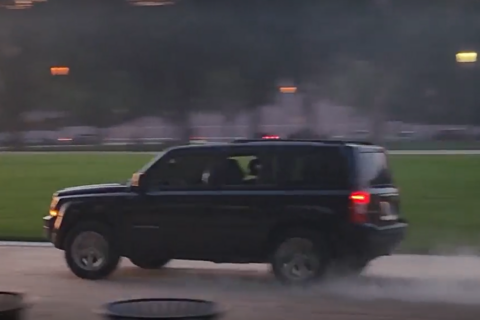The U.S. Attorney for D.C. prosecuted more cases in the first quarter of fiscal 2024 than it did in the last quarter of fiscal 2023, according to new data released Thursday.
In the last three months of 2023, the office prosecuted 55% of cases. That’s up from the 53% of cases it prosecuted from July through August of last year. Four percent of its cases are usually transferred for prosecution elsewhere.
Matthew Graves, the U.S. Attorney for D.C., previously said the increase is due in part to his office having full drug testing capabilities. When the city’s troubled crime lab lost its accreditation, it couldn’t test evidence, and Graves’ office couldn’t have experts testify about evidence that was tested.
D.C. is about six months to a year behind other parts of the country in seeing a dip in crime trends, Graves said. However, he pointed to D.C. police data that shows a decline in violent crime.
At this point in 2023, there were 47 homicides, according to police data. As of Thursday, there have been 30. Assaults with a dangerous weapon are also down, from 254 to 168.
Overall, violent crime in the first three and a half months of 2024 is down 15% compared to the same time frame in 2023. But other crimes, such as theft, are increasing, according to police data.
“One homicide is too many,” Graves said. “We will never celebrate the homicide number, because it is always a grim number. But right now, we’re 37% below where we were at this point last year. Those are really meaningful trends. Those are saved lives.”
The office has seen a meaningful overall rise in prosecutions over the last three years. In fiscal 2022, the office prosecuted 33% of cases. It prosecuted 44% in fiscal 2023, according to city data.
The latest data still falls below trends that emerged before the pandemic. From 2010 to 2018, the office charged between 64% and 77% of cases on the day of an arrest.
However, Graves said, some of the differences in the prosecution rates are the result of law changes and his office streamlining resources to avoid charging and then later dismissing a case.
“We’re really focused on doing everything we can to continue to drive down our most serious violent crime that plagued our community last year,” Graves said Thursday after releasing the latest prosecution data.
Sometimes, Graves said, his office doesn’t prosecute a case because the victim doesn’t want to go forward. According to D.C. law, he said, whenever police respond to a call for a domestic violence incident, they have to make an arrest if they find probable cause.
“Most states do not have that,” Graves said. “By definition, that means you’re going to arrest a lot of people that ultimately aren’t going to be prosecuted because no one involved in this situation, including the Metropolitan Police Department, thinks we should go forward. And we don’t see an independent need, in terms of protecting the community, for going forward.”
Seventeen states have similar mandatory arrest laws, and Graves’ office worked with the Department of Criminology and Criminal Justice at the University of Maryland to learn more about charging rates in states with mandatory arrest laws for domestic violence.
D.C.’s average day-of-arrest charging rate is five points higher than the average of those other states, Graves said.
D.C. law has also changed, which has resulted in current prosecution rates being lower than those pre-pandemic, Graves’ office said. Those changes, he said, “have made it, for certain offenses, harder to charge people at the time of arrest. So in those cases, we just have to do some more investigation before we charge them.”
Graves’ office has also prioritized reducing resources used in instances when it charges but later dismisses flawed cases that it can’t prove beyond a reasonable doubt. Still, about 90% of violent gun offenses are charged at the time of arrest — a number that’s remained about the same for years.
Graves’ office filed 8,000 cases in local or federal court last year. Beyond prosecution rates, he said the community should monitor other trends.
“Are people being held as the law presumes, that they will be held pretrial so that people aren’t immediately seeing the person back out on the street?” Graves said. “Are people receiving sentences for these crimes when they are convicted? Or are they getting probationary sentences for serious crimes like illegal firearms possession?”
When it comes to serious and violent crimes, Graves said the community “needs to understand that there are swift, certain consequences.”
Get breaking news and daily headlines delivered to your email inbox by signing up here.
© 2024 WTOP. All Rights Reserved. This website is not intended for users located within the European Economic Area.







